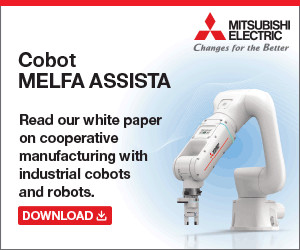Overview of Healthcare Management Consulting
Healthcare management consulting addresses operational challenges in the healthcare sector. Consultants focus on improving efficiency, quality of care, and financial performance. By analyzing an organization’s needs, consultants develop tailored strategies that enhance administrative functions and patient outcomes.
We categorize healthcare management consulting into several key areas:
- Operational Efficiency: Streamlining workflows and reducing waste so organizations can better meet patient needs with available resources.
- Financial Management: Optimizing financial practices to ensure the sustainability of healthcare institutions. This includes budgeting, revenue cycle management, and cost reduction strategies.
- Technology Integration: Incorporating advanced technologies like electronic health records (EHRs), patient management systems, and telehealth solutions to improve service delivery and data management.
By addressing these areas, healthcare management consulting aims to create an environment where healthcare providers can focus on delivering high-quality patient care while maintaining financial stability.
The Rise of Robotics in Healthcare Management
Robotics is revolutionizing healthcare management, impacting everything from operational efficiency to patient care outcomes.
Historical Context
Robotics in healthcare management began with automating routine tasks. Early adopters focused on surgical assistance and medication dispensing systems. In the 1980s, robots like the da Vinci Surgical System set a precedent for robotic surgery. Over the decades, advancements shifted towards administrative applications, gradually integrating robotics into healthcare management processes.
Current Trends
Today, robotics in healthcare management addresses operational efficiency and patient care. Robots assist with patient transport, supply chain management, and handling medical records. Additionally, robotic process automation (RPA) streamlines administrative tasks, freeing professionals to focus on critical decision-making. Current innovations include AI-driven robots for diagnostics and telepresence robots facilitating remote consultations, illustrating a broadening scope for robotics in healthcare management.
Benefits of Robotics in Healthcare Consulting
Integrating robotics in healthcare consulting offers numerous advantages. These benefits enhance operational efficiency, reduce costs, and improve patient care.
Efficiency and Accuracy
Robotics enhances efficiency and accuracy in healthcare management. Robots automate repetitive tasks (e.g., scheduling, billing), reducing human error. They handle large data sets more quickly than humans, ensuring data integrity. AI-driven robots can assist in diagnostics, providing consistent and precise results.
Cost Reduction
Robotics helps cut costs in healthcare consulting. Automated systems streamline administrative tasks, lowering labor expenses. Efficient supply chain management reduces waste and inventory costs. Robotics in surgeries and diagnostics, due to precision, reduces complication rates and associated costs.
Patient Care Improvement
Patient care sees significant enhancements with robotics. Robotic assistants support patient mobility and rehabilitation. Telepresence robots facilitate remote consultations, expanding access to specialized care. Robots manage medication dispensing, ensuring accurate dosages and timely administration.
Key Areas of Impact
Integrating robotics into healthcare management consulting has transformed several crucial areas. Among these, administrative automation, data management, analytics, surgical assistance, and telemedicine stand out.
Administrative Automation
Robots have streamlined various administrative tasks. Automating patient scheduling, billing, and claims processing reduces human error and enhances efficiency. For instance, robotic process automation (RPA) manages repetitive tasks like data entry and appointment reminders, freeing staff for more critical duties. We see significant cost savings and increased productivity through these advances.
Data Management and Analytics
Robotics enhances data management by swiftly handling large datasets. Robots automate data collection, enabling real-time analysis and actionable insights. For instance, automated systems assist in managing electronic health records with greater accuracy and speed. This improves decision-making and patient outcomes. In consulting, leveraging these tools optimizes data utilization for strategic planning.
Surgical Assistance and Telemedicine
Robotic systems in surgery offer precision, reducing recovery times and improving outcomes. Examples include robotic surgical assistants that provide better control during procedures. Telemedicine benefits from telepresence robots, allowing remote consultations and monitoring. Our consulting services incorporate these technologies to expand access and improve patient care levels.
Case Studies and Success Stories
Examining real-world implementations highlights the tangible advantages of robotics in healthcare management consulting. Let’s explore leading examples and the quantitative benefits these technologies provide.
Leading Examples
At the Mayo Clinic, robotic systems streamline patient scheduling, minimizing wait times. Boston Dynamics’ robots optimize supply chain logistics, ensuring timely medical inventory deliveries. Duke University Hospital employs surgical robots, enhancing precision and reducing recovery times. These examples showcase how robotics delivers efficiency, accuracy, and improved patient care.
Quantitative Benefits
Robotic process automation in administrative tasks reduced hospital operation costs by 30%, according to a report by McKinsey. A study by the Journal of Medical Internet Research reveals hospitals using telepresence robots see a 50% increase in remote consultation efficiency. Surgical robots have been shown to cut recovery times by 20%, backed by data from the National Institute of Health. These metrics underscore the economic and operational gains from robotic integration.
Challenges and Considerations
Robotics in healthcare management presents several challenges. Addressing these issues ensures safe and effective implementation.
Ethical Concerns
Ethical concerns arise with the use of robotics in healthcare management. Privacy risks increase due to data collection and processing. Patient confidentiality must be strictly maintained. Additionally, bias in algorithm design can affect decision-making, requiring constant monitoring. Ensuring robots adhere to ethical medical practice standards is vital to maintaining trust.
Technical Limitations
Technical limitations also pose significant challenges. Integrating robotics with existing healthcare systems can be complex and costly. Compatibility issues with legacy systems often hinder seamless integration. Moreover, maintenance and software updates require continuous investment. Ensuring high levels of reliability and uptime is crucial to avoid disruptions in patient care.
Future Outlook
The future of healthcare management consulting with robotics looks promising. Rapid advancements shape our expectations, enhancing efficiency and improving patient outcomes.
Predictive Developments
Artificial intelligence (AI) and machine learning algorithms predict patient needs and optimize resources. Automated systems enhance preventative care by identifying potential health issues early. For example, predictive analytics tools assess patient data to foresee hospital admission rates, ensuring adequate staff scheduling. Robotics powered by AI offer continual improvements to healthcare services, adapting to emerging trends.
Industry Innovations
Innovations like robotic process automation (RPA) streamline administrative tasks. Enhanced surgical robots, such as the da Vinci Surgical System, already perform minimally invasive procedures with precision. Wearable health monitors, integrated with robotics, continuously track patient vitals, providing real-time data to healthcare providers. These advancements guarantee a future where robotics plays a critical role in healthcare management, saving time and reducing costs.
Conclusion
The integration of robotics in healthcare management consulting is revolutionizing the industry. By automating administrative tasks, enhancing data analytics, and improving surgical precision, robotics is driving efficiency and better patient outcomes. Despite challenges like ethical concerns and technical limitations, the future looks bright.
As we navigate these complexities, it’s essential to uphold ethical standards and ensure system reliability. With ongoing advancements in artificial intelligence and machine learning, we can expect even greater innovations. Robotic process automation, advanced surgical robots, and wearable health monitors are just the beginning.
Embracing these technologies will not only save time and reduce costs but also pave the way for a more efficient and effective healthcare system. Let’s continue to explore and harness the potential of robotics to transform healthcare management consulting for the better.





